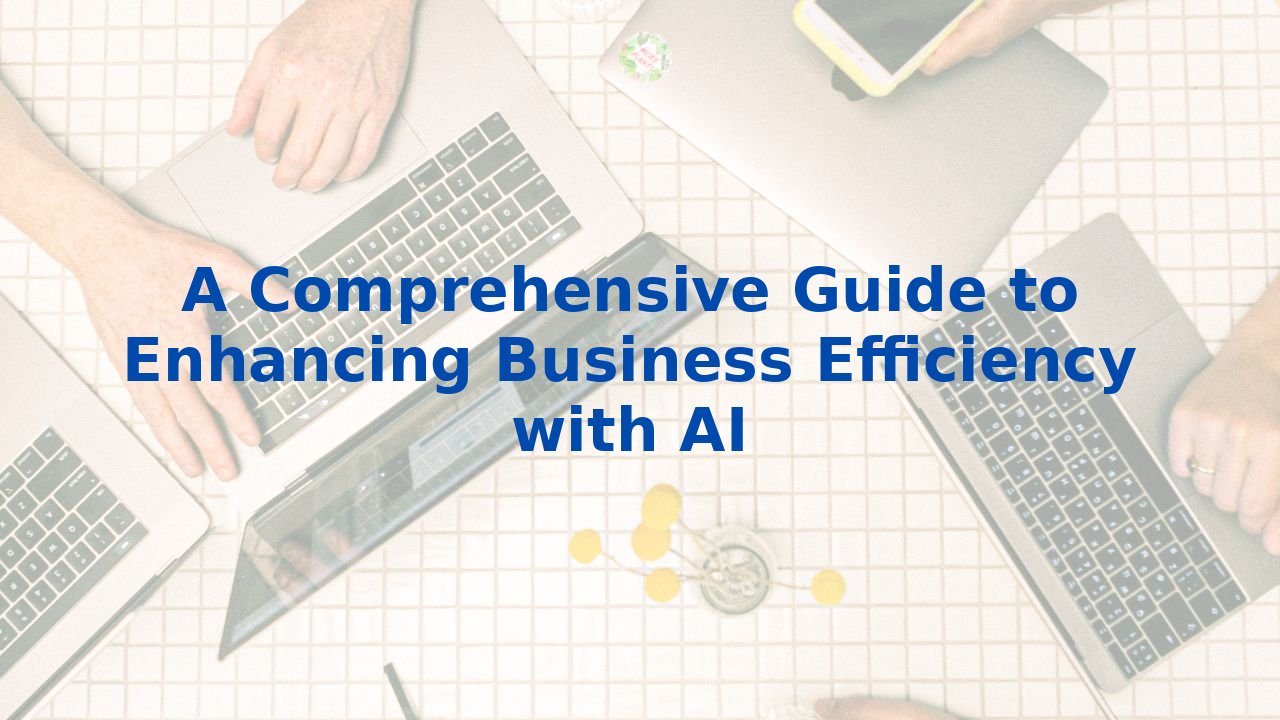A Comprehensive Guide to Enhancing Business Efficiency with AI
Enhancing Business Efficiency with AI: A Comprehensive Guide
In today's fast-paced business climate, organizations are continually seeking opportunities to optimize their operations and remain competitive. One of the most remarkable advancements in recent years has been the integration of Artificial Intelligence (AI) into various business processes. This article will explore how AI can enhance general business practices, emphasizing the numerous benefits it offers for improving organizational efficiency. Moreover, we will discuss the importance of equipping employees with the training they need to harness AI's full potential.
1. Automation and Efficiency Gains
AI technologies excel at automating repetitive, time-consuming tasks, allowing employees to dedicate their time to more strategic and creative aspects of their work. From managing data entry to generating invoices and even customer support via chatbots, AI enables businesses to minimize the costs associated with mundane tasks while maximizing the talents of their human resources. This shift not only enhances productivity but also cultivates a culture where innovation can flourish.
2. Data Analysis and Predictive Analytics
At the heart of AI's power lies its ability to analyze vast volumes of data, uncover trends, and predict future outcomes. Predictive analytics empowers companies to make informed decisions by examining data patterns that provide insights into their operations. By identifying bottlenecks and inefficiencies in workflows, businesses can streamline processes and unlock significant productivity gains. In a world inundated with information, AI acts as a guiding compass, steering organizations toward better decision-making.
3. Improved Monitoring and Quality Control
The real-time processing capabilities of AI transform monitoring and quality control into proactive endeavors. Early detection of issues is essential, and AI facilitates this by providing actionable insights. In manufacturing, for instance, AI can monitor equipment data to predict maintenance needs, preventing disruptive breakdowns. When organizations take a proactive approach, they create a foundation for sustained efficiency and quality.
4. Enhanced Decision-Making
Organizations are increasingly using AI to derive insights from their data, replacing intuition-based decisions with data-driven strategies. AI can summarize extensive narrative feedback from employees, allowing leaders to unearth the true sentiments behind their workforce's responses. This method fosters a more democratic approach to decision-making, ensuring that choices are grounded in reality rather than biases or assumptions.
5. Improved Speed of Business Operations
AI's influence extends to the speed of business operations, enabling shorter processes and quicker transitions from one stage to the next. For example, AI can streamline workflows from design to commercialization, delivering measurable ROI. In an era where being agile is paramount, organizations that harness AI for efficiency gain a significant edge in productivity and competitiveness.
6. Reducing Human Error and Enhancing Quality
Integrating AI with Robotic Process Automation (RPA) can dramatically decrease errors while enhancing adherence to established standards. AI's decision-making and analytical prowess minimize the likelihood of human error, resulting in superior outcomes. This marriage of automation and accuracy doesn’t just speed up processes; it amplifies the value proposition of an organization, building trust in its capabilities.
7. Training Employees for AI: A Key to Success
While AI offers tremendous advantages, the human element remains essential. Training employees to work effectively with these technologies is crucial for maximizing benefits. Focused training programs that cultivate skills such as critical thinking, problem-solving, and collaboration will empower employees to embrace AI seamlessly.
Investing in employee training ensures that your workforce can adapt to new challenges and roles introduced by AI, enhancing overall labor productivity. A well-trained team becomes a catalyst for innovation, leveraging AI to enhance their performance and drive business success. You can explore various AI training programs designed to equip your organization with the necessary skills to thrive in this evolving landscape.
Conclusion
The integration of AI into business operations promises a myriad of benefits, including enhanced efficiency, improved decision-making, and decreased human error. By automating routine tasks, leveraging data-driven analytics, and fostering vigilant monitoring systems, organizations can unveil streamlined workflows capable of delivering exceptional results. Furthermore, ensuring that employees are prepared to work alongside AI technologies is vital for realizing its full potential. As businesses strive to stay competitive in the ever-evolving market, embracing AI is not just an option; it's a necessity for achieving operational excellence.



